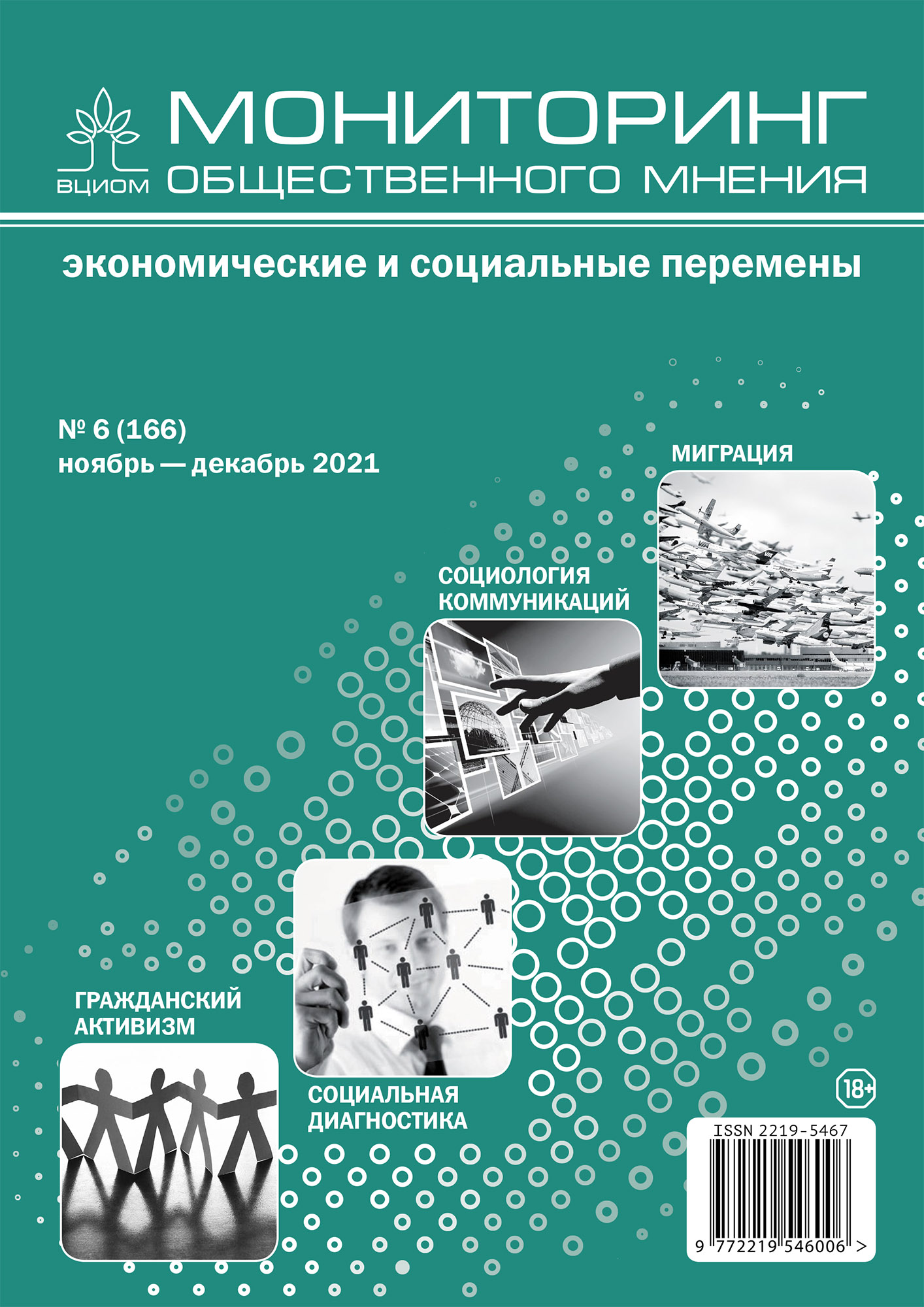The Role of Social Media in Shaping Regional Ecological Protest in Russia
DOI:
https://doi.org/10.14515/monitoring.2021.6.2024Keywords:
political protest, ecological protest, social media, political participation, political discussionAbstract
In 2018—2019, Arkhangelsk Oblast took one of the leading positions among all regions of Russia in terms of protest activity. This was caused by the decision of the regional authorities to construct a landfill for the disposal of solid household waste from Moscow and Moscow Oblast at Shies station. Taking into account the fact that social media played a key role in mobilizing citizens, the authors of this study aimed to identify the role of discussions in social media concerning the construction of a landfill in increasing the protest activity of the Arkhangelsk Oblast residents. Empirically, the study bases on the data of a representative population survey and the nonreactive data collected from the «VKontakte» public groups discussing the construction of a landfill.
The study revealed that more frequent social media discussion of landfill construction at an individual level increased the likelihood of participating in protest activities. In addition, the authors found a group effect of the discussion: an increase in the number of members of protest communities, as well as the prevalence of reposts of their information at the level of municipal districts of Arkhangelsk Oblast, increased the protest activity of citizens. Finally, it has been shown that participation in protests depends on the information environment: in the areas where the problem is discussed more actively, the effect of the observed individual discussion is higher. Thus, to assess the impact of media activity on political protests, it is important to take into account not only two different levels of discussion, but also the interaction between them.
Acknowledgments. The study was financed by the Russian Foundation for Basic Research (RFBR) within grant No. 21-011-31830 «Political Awareness and Political Knowledge under the Context of the Dissemination of “Soft” Formats of Political Information». The authors thank Georgiy Epifanov for the access to nonreactive data.
Downloads
Published
How to Cite
Issue
Section
License
Copyright (c) 2021 Monitoring of Public Opinion: Economic and Social Changes Journal (Public Opinion Monitoring) ISSN 2219-5467

This work is licensed under a Creative Commons Attribution-NonCommercial-ShareAlike 4.0 International License.






